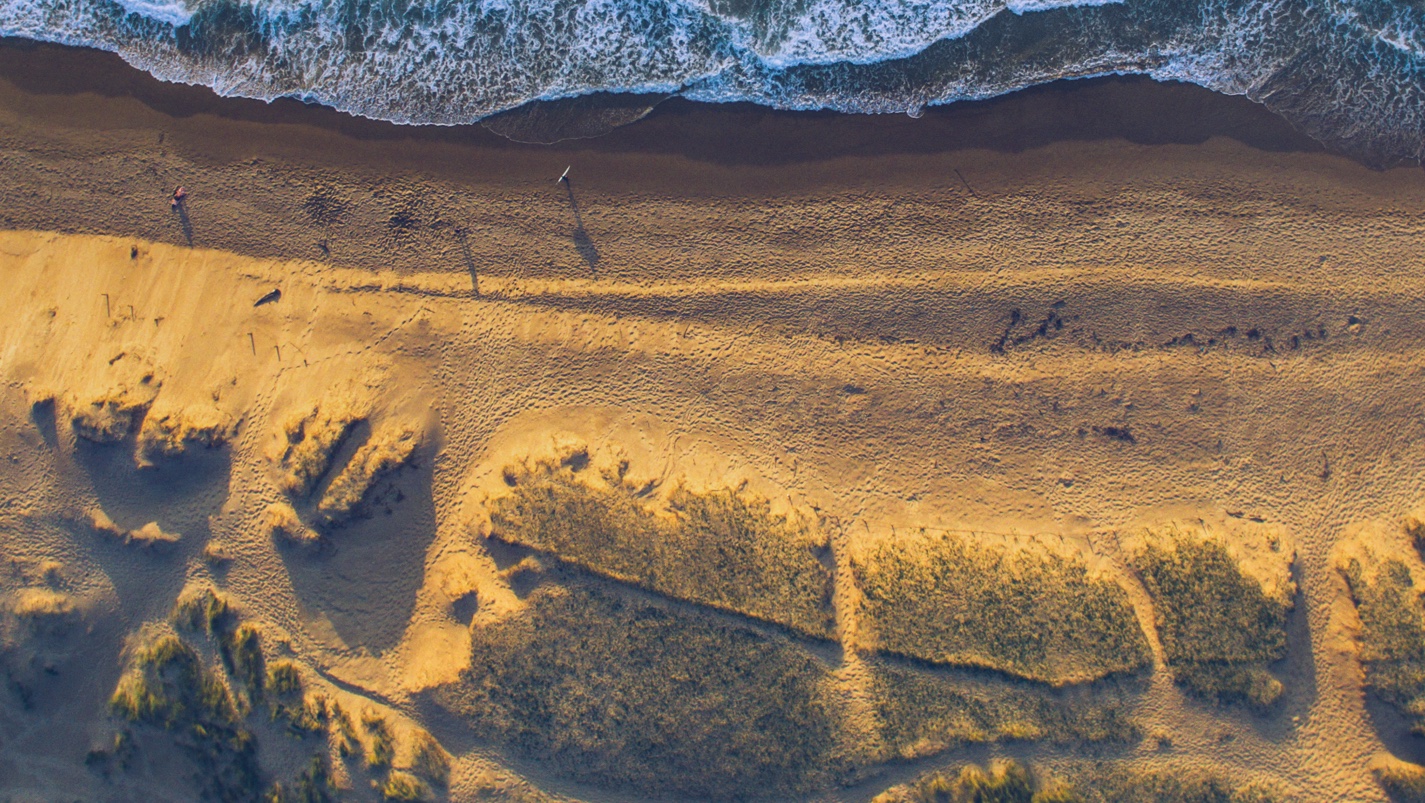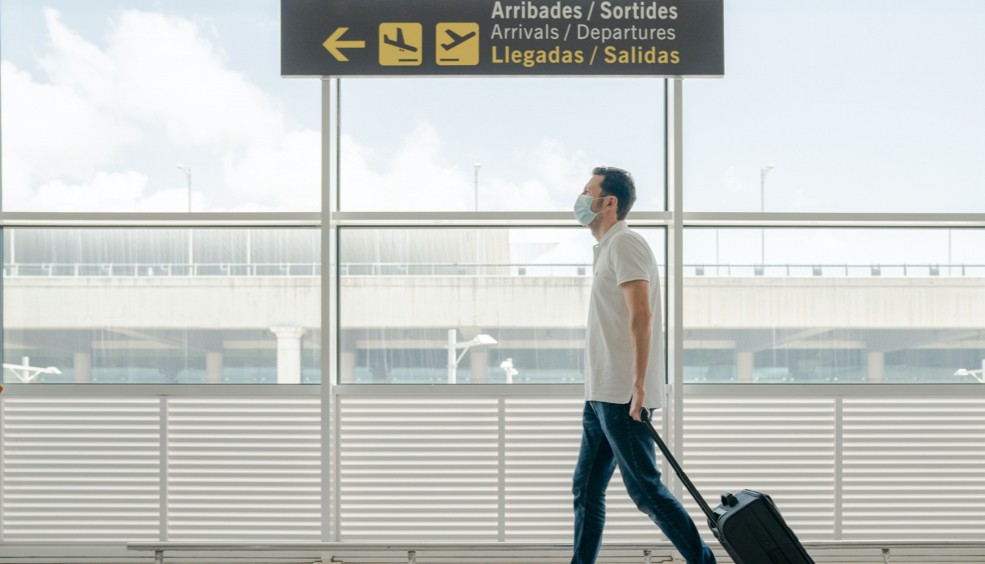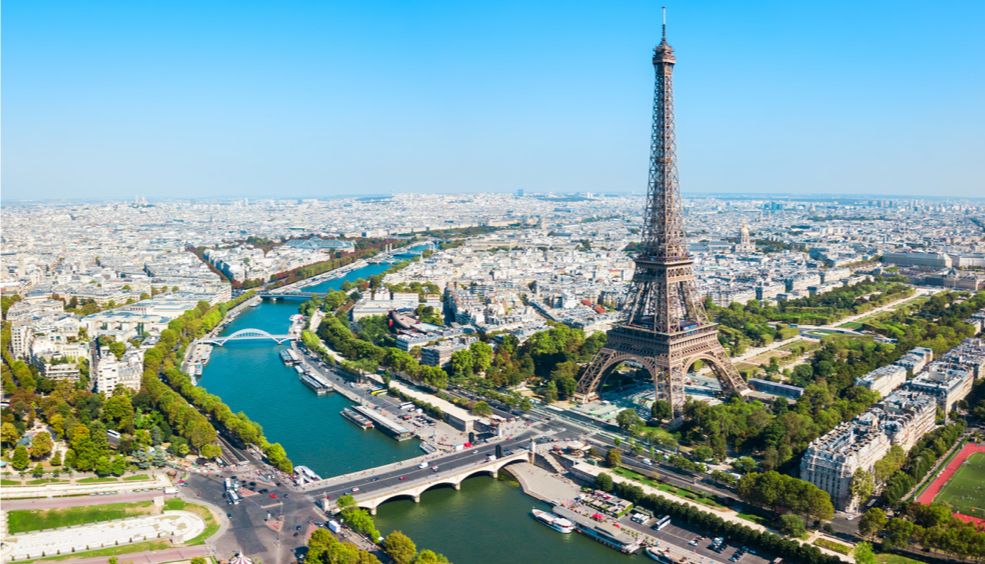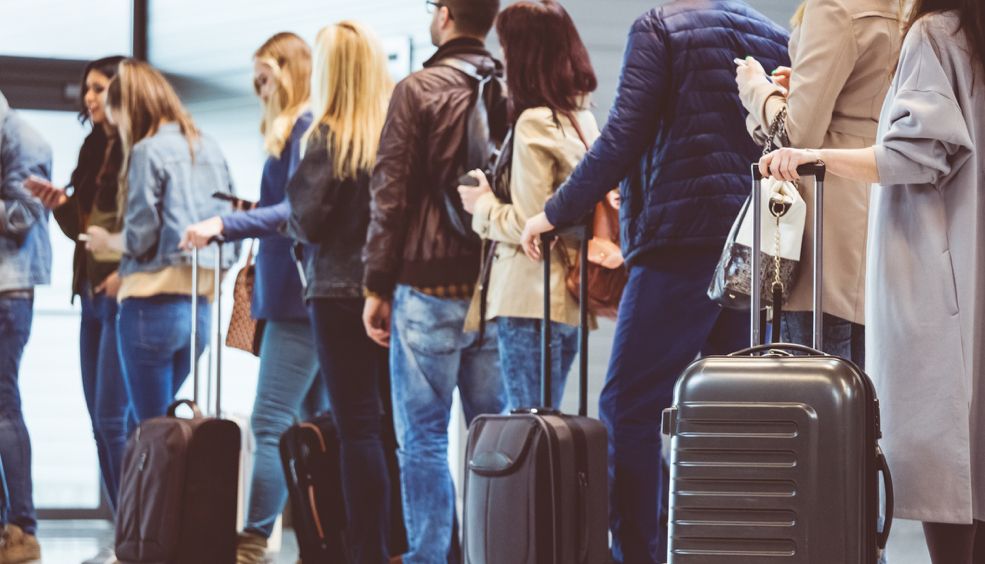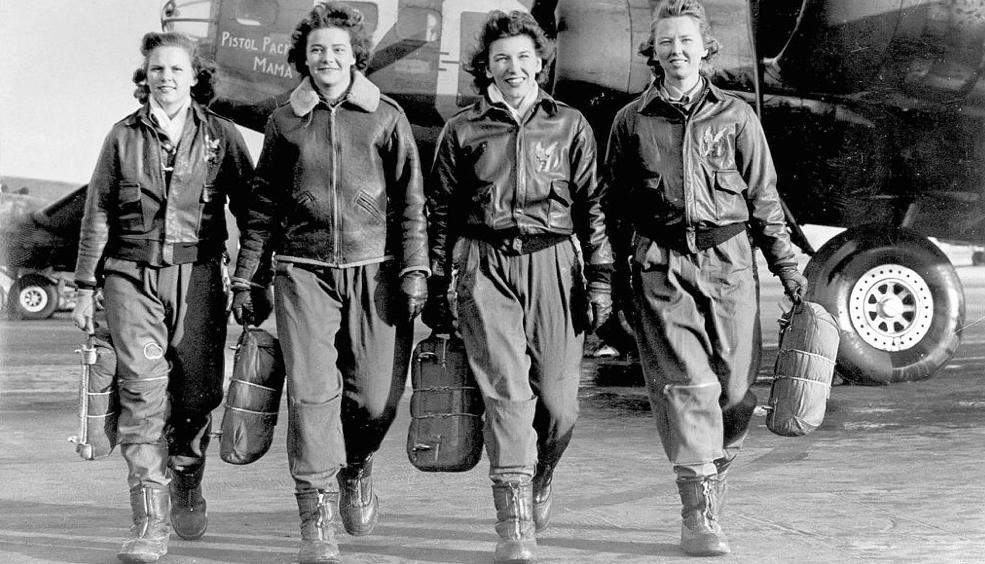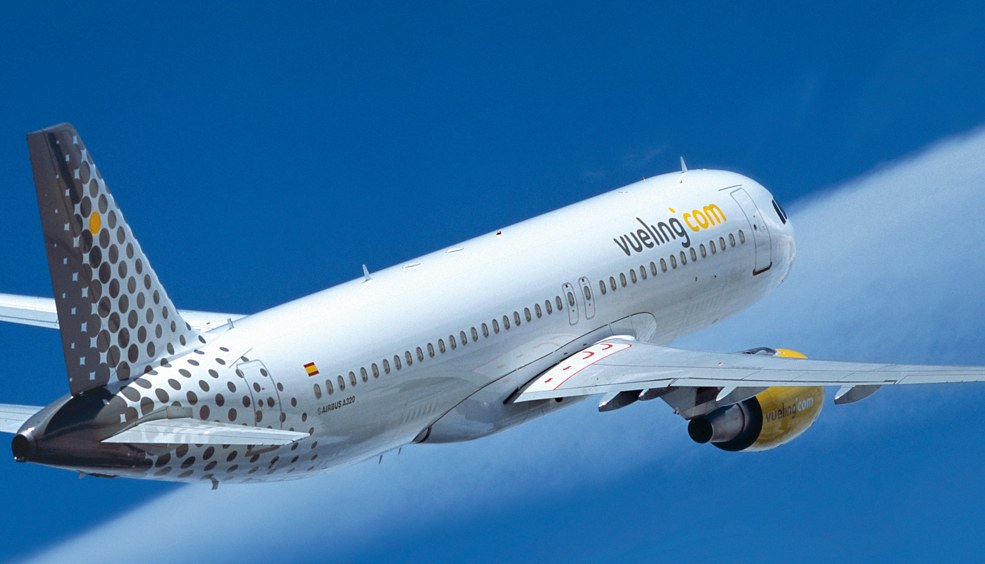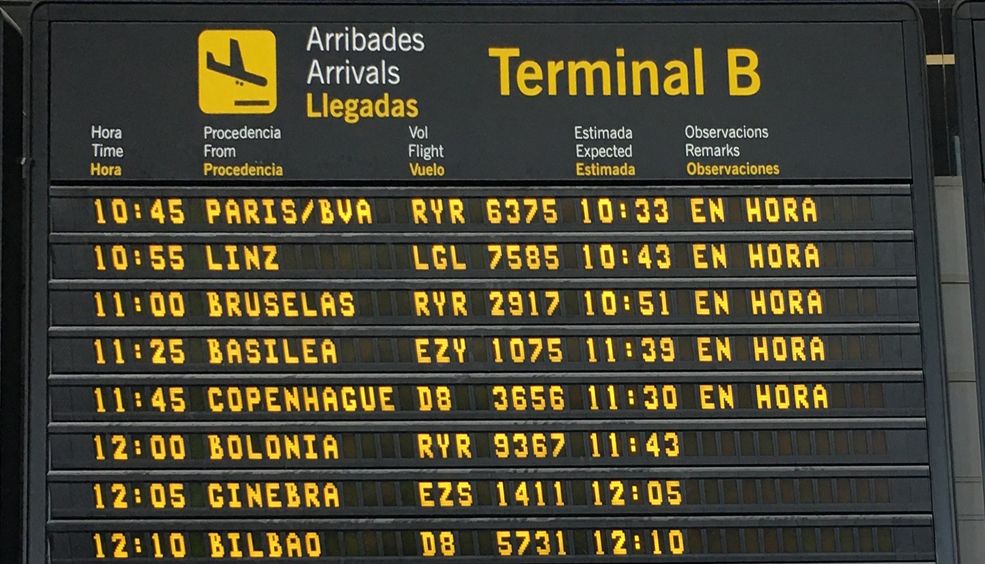According to a study conducted by the International Air Transport Association (IATA), the answer is clear: YES, IT IS! They base their conclusions mainly on the low number of in-flight coronavirus transmission cases detected (44 cases in the whole of 2020 out of a total of 1.2 billion passengers, most of them occurring before face masks were compulsory). We’re going to tell you why these figures are so low.
From the start, Vueling, like the rest of airlines, put in place strict safety measures recommended by the European Union Aviation Safety Agency (EASA) and the European Centre for Disease Prevention and Control. The aim is to ensure the safety not only of passengers but also of the cabin crew. These measures included things like mandatory face masks throughout the flight, online check-in to avoid queues at the airport and organising the boarding and disembarking processes so they are conducted in an orderly fashion. If you are planning on flying over the next few days, we advise you to take a look at this guide, which will help you to travel with peace of mind.
According to a survey conducted also by IATA, 86% of people who have flown felt safe and, according to several experts, the plane’s cabin is the safest place to be during this pandemic. You can find all the information on this study at the IATA website.
Reasons why flying is so safe
- Ventilation systems and HEPA filters
The plane’s ventilation systems reduce particle movement down to a minimum inside the cabin, which means that the virus doesn’t spread. Plus, planes have powerful HEPA filters, which are up to 99.99% effective in eliminating bacteria, particles and viruses, and they refresh the air every 3 minutes (just to compare, in an office this happens about 2-3 times every hour). In short, the air on a plane is comparable to that of an operating theatre.
- Face masks are mandatory
All passengers and crew must wear surgical or higher-grade face masks. As we are protected and protecting others, the risk of infection is drastically reduced.
- Cabin layout
Movement is restricted inside a plane and during the flight passengers are facing forwards, which means that there is hardly any face-to-face interaction. It is also important to bear in mind that plane seats act as a barrier between rows of passengers.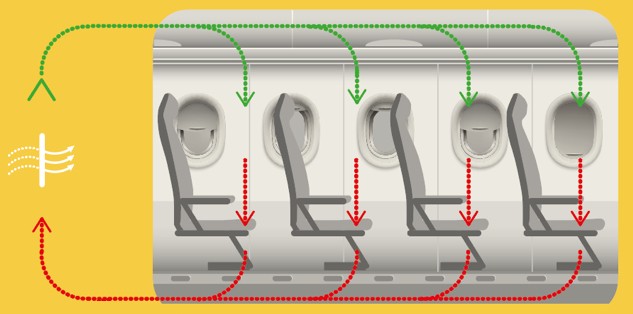
- New cleaning protocols
Logically, cleaning inside the cabin has been increased: it is cleaned more times using specific products recommended by the AESA (Spanish Aviation Safety and Security Agency), focusing especially on high-touch surfaces like armrests, folding tables, overhead lockers, toilets and crew areas. What’s more, Vueling offers each passenger a disinfecting wipe and a little bag for rubbish. Additionally, the soap in the toilets is changed more frequently and we've introduced strict safety protocols for disposing of waste after each flight.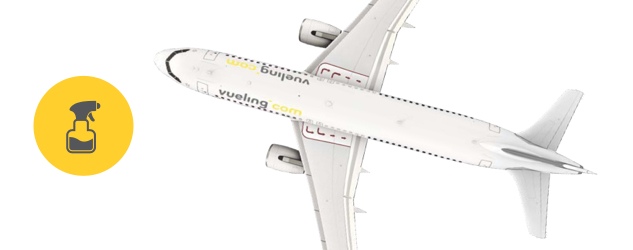
- Safe catering service
Hygiene measures when serving food on board have also been increased, and Vueling has removed paper menus. Now you have a QR code on the seat in front of you where you can view the menu, like many restaurants do nowadays.
On top of all this, airports have also put stricter measures in place to avoid queues at security, for example, and passengers are advised to arrive at the airport no more than 90 minutes in advance, to avoid being there more than necessary.
The experts were right – a plane is definitely one of the safest places to be during the pandemic!

